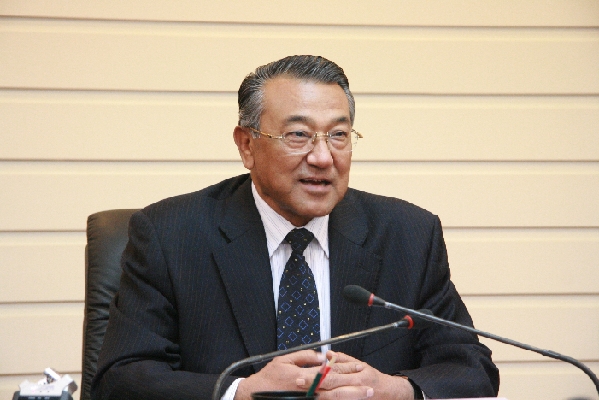More investment for resource-rich Xinjiang
- By Li Xiaohua
 0 Comment(s)
0 Comment(s) Print
Print E-mail China.org.cn, October 19, 2010
E-mail China.org.cn, October 19, 2010
Some 11,000 enterprises have located in Xinjiang Uygur Autonomous Region so far, a high-ranking official from the region's Development and Reform Commission said on Oct. 18.
 |
|
Wumaier Abudula speaks to members of the media. |
According to Wumaier Abudula, general director of the commission, many domestic enterprises such as the Shenhua Group, China Oil & Food Corporation (COFCO), China National Materials Group Corporation Ltd. (Sinoma), and steel manufacturers Baosteel and Shougang groups have built new bases in Xinjiang. The number of well-known foreign companies that have entered Xinjiang has reached 25.
In recent years, the gradually depleted energy and mineral resources in China's eastern region have strained to meet the rapid development of the economy. Subsequently, more companies are eyeing resource-rich Xinjiang.
Xinjiang accounts for 30 percent of China's future petroleum reserves, 34 percent of its natural gas reserves and 40 percent of its coal reserves. The total wind energy in Xinjiang accounts for nearly 40 percent of the whole country, and mineral resources are also abundant. Reserves of 138 kinds of minerals have been identified, which occupies 80.7 percent of the national total. In addition, Xinjiang boasts significant solar energy potential. The region enjoys 2,600 to 3,500 hours of cloudless days per year.
Xinjiang, which occupies one-sixth of China's entire area, will be injected with more than 10 billion yuan (US$1.46 billion) in economic aid next year from 19 provinces and municipalities designated as partners, which include Beijing, Shanghai and Shenzhen.





